Interesting stories about dogs around the world
(Baonghean.vn) - Why did ancient Egyptian culture worship dogs? The special role of dogs in ancient Greek culture, Why don't Europeans eat dog meat? ... are interesting stories about dogs around the world.
1. Why did ancient Egyptian culture worship dogs?
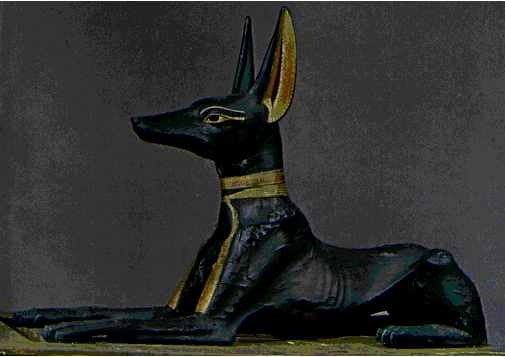 |
| In cultural and spiritual life, the Egyptians used dogs as a symbol for the God of Death Anubis. |
In their cultural and spiritual lives, the Egyptians used dogs as symbols for the God of Death, Anubis. Anubis is one of the most important gods of the ancient Egyptian world. This god is depicted as having a male body and a jackal head. The image of Anubis is often engraved on hieroglyphic texts carved on Egyptian tombs and temples. Anubis symbolizes mummification and death.
Because jackals were often found in cemeteries, the Egyptians believed that Anubis watched over the dead. This jackal-headed Anubis helped mummify Osiris after he was killed by Seth. Priests often wore Anubis masks during mummification ceremonies. Over the years, archaeologists have found several Anubis temples containing millions of animal mummies, including mummified dogs, along with many valuable artifacts.
2. The special role of dogs in ancient Greek culture
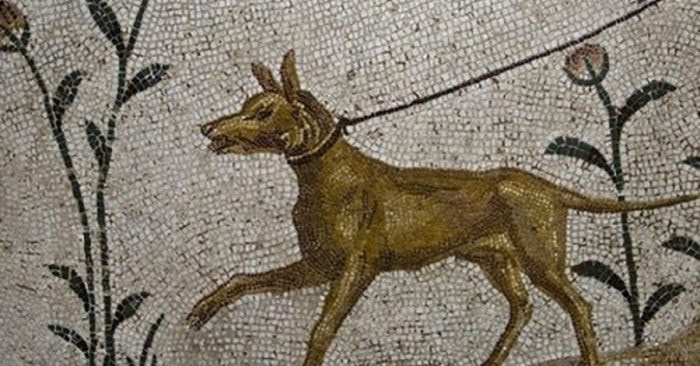 |
| Dogs played an important role in ancient Greek social and cultural life. |
Dogs played an important role in the social life and culture of ancient Greece. Ancient Greeks loved animals, especially dogs, because dogs played an important role in people's lives such as guarding houses, participating in hunting...
They are also described as loyal friends of humans. One of the famous stories about Greek dogs is Argos - the loyal friend of King Odysseus of the Kingdom of Ithaka.
Not only loyal friends, ancient Greeks also used dogs as brave "warriors" in war. The large dogs were used by ancient Greeks as vanguards to attack the enemy. As a result, these special "warriors" disrupted the enemy's formation, helping the Greek army easily defeat the enemy.
3. Why don't Europeans eat dog meat?
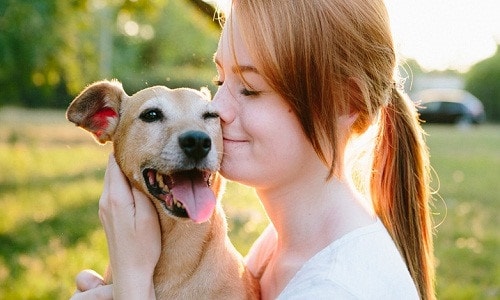 |
| Eating dog meat has been a hot topic of debate for many years. Specifically, in many countries around the world, including Europe, people consider animals such as dogs and cats as pets and even take good care of them like family members. |
While some countries, especially in Asia, consider dog meat a delicacy, many European countries do not eat this dish. In fact, many people, even animal protection organizations and groups, condemn the act of eating dog meat.
They do not consider dog meat as a food and eating pets is taboo. Animal protection groups in many countries also strongly condemn and oppose the killing of dogs for meat and processing them into dishes. Many people who do not eat dog meat in the West are horrified, even condemn and discriminate against the actions of those who kill dogs and eat these animals.
Therefore, animal protection organizations in both China and many countries around the world such as the UK, US, Australia... strongly protested.
4. Dog breeding in America
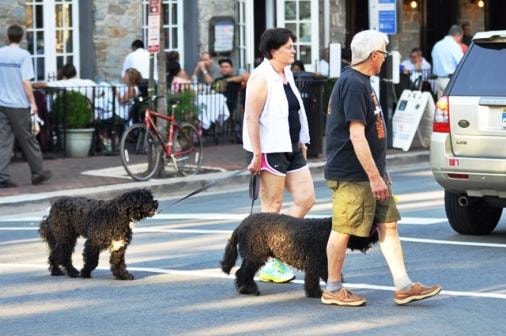 |
| Walking the dog in America. |
Dog ownership in the United States is quite common, if not the highest in the world. Older American households without children often keep dogs as companions to reduce their loneliness.
For children in America who are well cared for and educated to love animals and protect the natural environment, they like to raise dogs, so dogs become close friends to them.
In New York City, first-time dog thieves face a $1,000 fine. In Philadelphia, dogs left out in the cold below -6 degrees Celsius are fined $500. It is true that many American households keep dogs as pets, but American law requires owners to be responsible for their pets, not to treat them however they want.
In addition, the United States has a whole family pet industry with many diverse services, serving to the teeth, with a total market value of up to tens of billions of dollars, including funeral services and graves at cemeteries for dogs.
5. The story of the abandoned dogs in the "ghost town" of Chernobyl
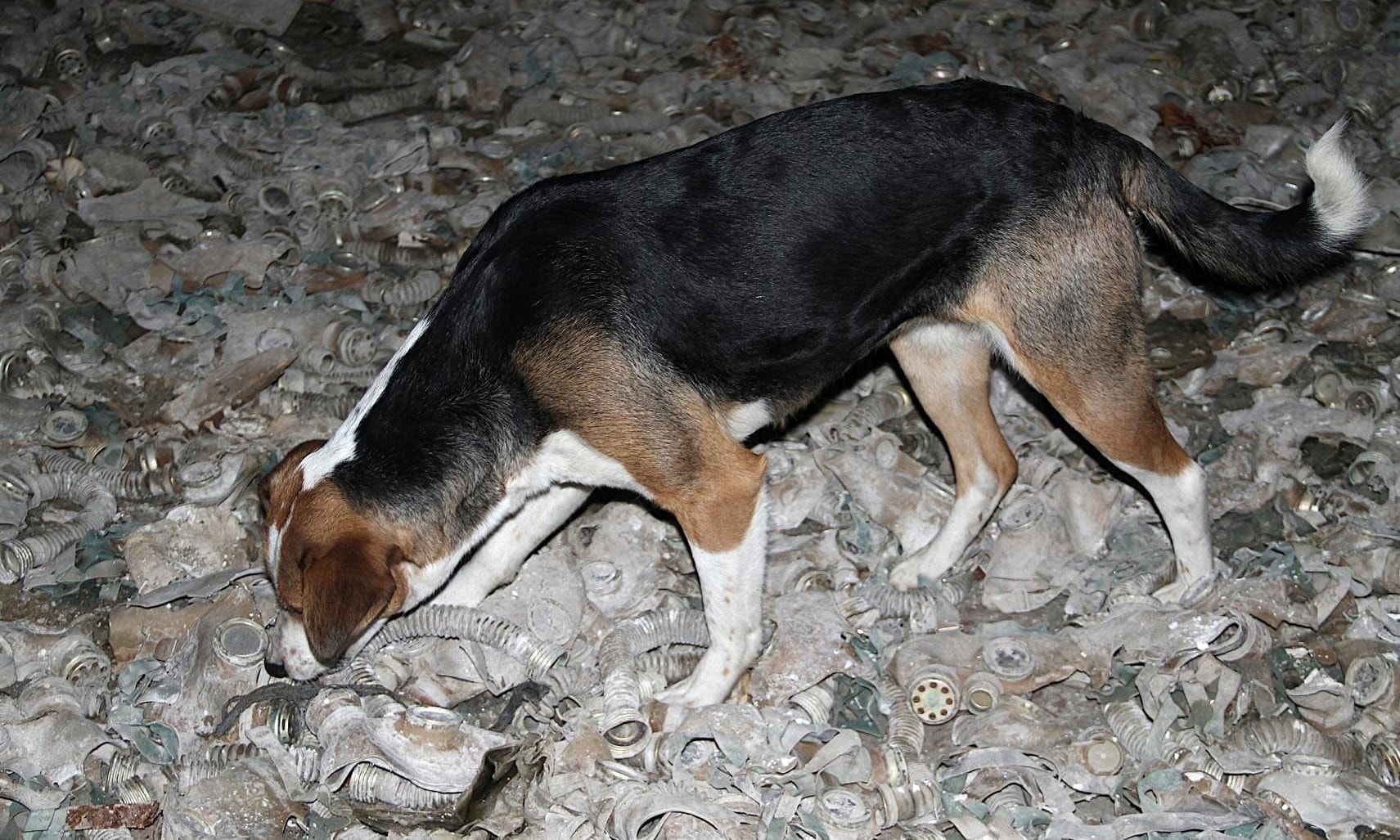 |
| Very few dogs survived the sixth year in Chernobyl. |
After the nuclear disaster in Chernobyl in 1986, the city's residents were evacuated to safety without being allowed to take any pets with them. In the book A Prayer from ChernobylJournalist Svetlana Alexievich recorded a statement from an eyewitness:“Many dogs barked loudly, they tried to climb onto the bus but were kicked out by soldiers… In the end, they could only run after the vehicles carrying the elderly.”
Fortunately, some dogs escaped and have survived to this day. But life on the run in Chernobyl was never easy. They had to endure harsh winters without shelter, and they were exposed to radiation that shortened their lifespans.
Stray dogs often live around the area’s checkpoint, which is lined with small huts. Some are smart enough to congregate near the local cafe, knowing that where there are humans, there is food. These canine gangs act as unofficial mascots for Chernobyl, welcoming tourists who stop at Cafe Desyatka and wait for a treat.
6. Little-known stories about Laika - the dog who flew into space
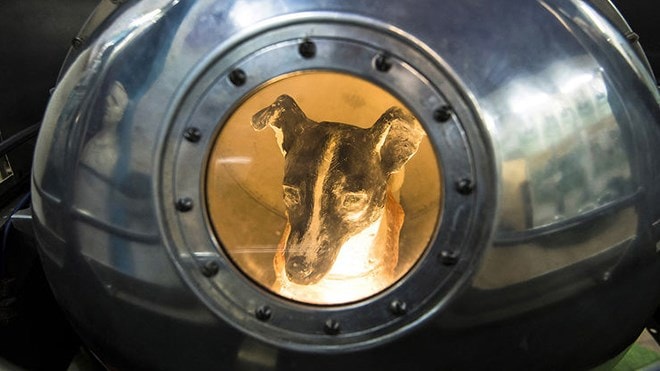 |
| Dog Laika inside a replica of the Sputnik 2 satellite |
On November 3, 1957, the Soviet Union stunned the world by launching Sputnik 2 and putting the first living animal into orbit. On this small ship was a little dog named Laika. Laika was a stray dog, weighing 16kg, picked up on the streets of Moscow just a week before being sent into space.
She and two other dogs were chosen because they seemed calm and best suited to the mission. During training, scientists monitored the dogs’ agility by keeping them in increasingly cramped cages for two weeks straight. They were regularly trained in centrifuges that simulated rocket acceleration, as well as devices that simulated zero gravity. After each training session, their heart rates doubled.
On November 3, 1957, at the Baikonur Cosmodrome, Sputnik 2 was launched into Earth orbit, carrying Laika. That same day, Radio Moscow broadcast information that signals from Sputnik 2 showed that: the operation of scientific equipment was still going on normally and Laika was still alive.
Six days later, Earth lost all contact with Sputnik 2. After 163 days of continuous flight, 2,570 orbits of the Earth at a speed of 28,968 km/h, on April 14, 1958, Sputnik 2 carried Laika's body back to Earth, successfully ending its pioneering mission.
7. Interesting story about the police dog accompanying the US President around the world
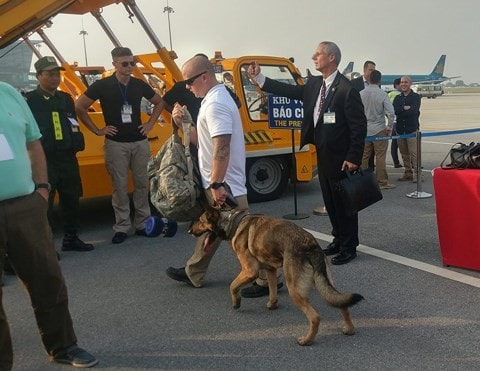 |
| The dog team protecting President Trump in Da Nang in November 2017. |
K9 dogs are part of the elite K9 unit of the US Secret Service, established in the 1970s. Their outstanding skills are sniffing, detecting explosives, mines and quickly handling attackers. They are selected and trained to be ready to perform one of the most important jobs: protecting the President.
To become an elite dog in the President's protection ranks, they must undergo testing and training in extremely strict and harsh training schools. Initially, German Shepherd dogs were the number one choice because they had more suitable qualities. However, by the 1990s, Belgian Malinois dogs began to be noticed and selected for their more outstanding abilities.
Both are extremely intelligent, agile, strong, fierce and highly alert dog breeds. The Belgian Shepherd is smaller in size but has more strength, large muscles and more flexible attack ability. They have extremely fast speeds of about 40-50 km/h.
The outstanding feature of the service dogs is their extremely sensitive sense of smell. They are able to sniff out many different types of explosives and detect targets within seconds. A US Secret Service dog can detect small amounts of explosives placed in bags or even in containers within a radius of 100 meters.

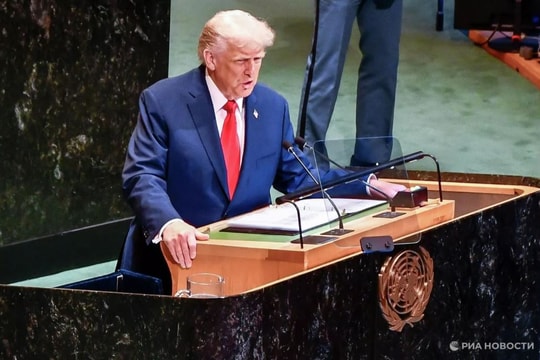



.jpg)


